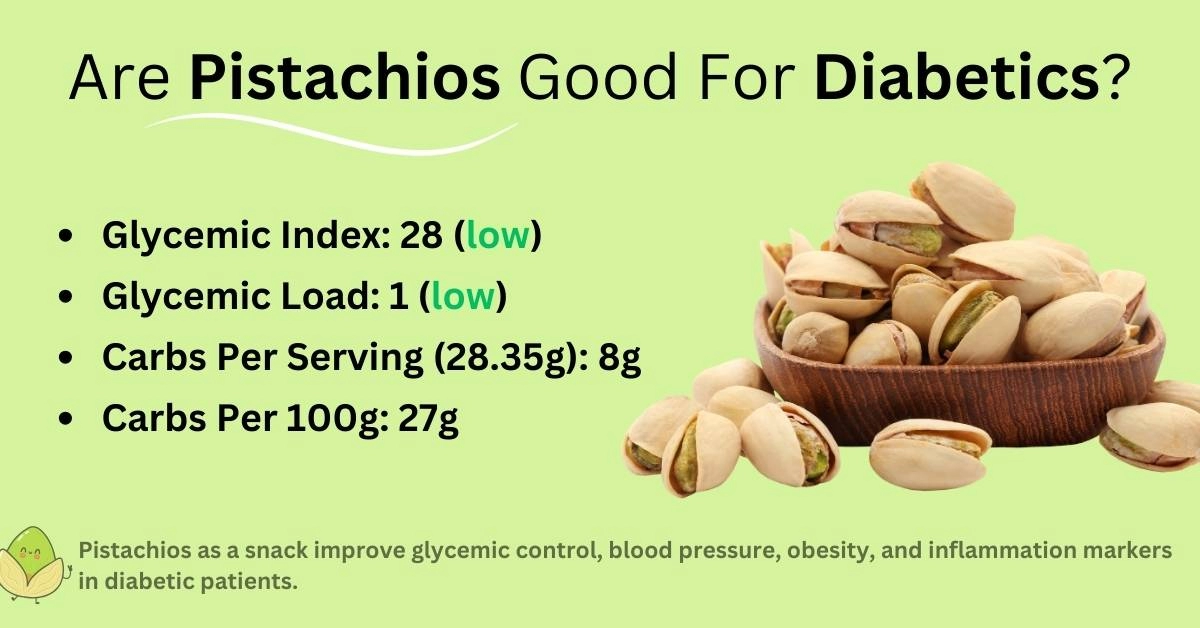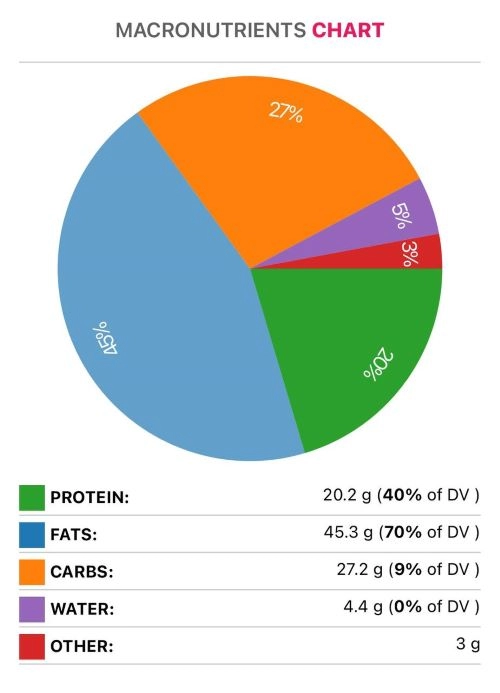Pistachios and Diabetes - Are They Good for Diabetics

Introduction
The American Diabetes Association recommends daily nuts, as they are diabetes superfoods. Pistachios are a good example, as they have high fiber content and a low glycemic index.
We'll go through the benefits of eating pistachios and discuss how they can help with high blood sugar levels.
Type-2 Diabetes
Pistachios have a low glycemic index and may help to reduce the risk of diabetes or diabetic complications. The estimated glycemic index of pistachios is 28.
One study (1) shows that pistachios have glucose and insulin-lowering effects, promote a healthier metabolic profile, and reverse prediabetes's irreversible deleterious effects.
Fasting glucose, insulin, and HOMA of insulin resistance decreased significantly after the pistachio-supplemented diet. Other cardiometabolic risk markers, such as fibrinogen and oxidized LDL, were significantly lower with the pistachio-supplemented diet (1).
However, HbA1c levels did not change significantly.
Another research shows pistachio intake can help enhance the glucose and insulin metabolism of prediabetic patients and improve insulin resistance and other cardiovascular risk factors (2).
Pistachios are high in carbohydrates but have a low glycemic index because of their high fiber content. To find glycemic index values of 350 foods, visit the Glycemic index chart page.
Studies have shown that pistachios and other nuts significantly reduce the risk of developing type 2 diabetes mellitus when consumed daily.
A study concluded that eating pistachios as a snack improves glycemic control, blood pressure, obesity, and inflammation markers in diabetic patients (3).
Another three-month study of 117 people with type 2 diabetes shows pistachios' beneficial effects on blood glucose levels. Based on the study, people with type 2 diabetes who ate about two ounces of tree nuts as snacks instead of other carbohydrates improved their long-term blood sugar control and lowered their cholesterol levels (4).
European Journal of Clinical Nutrition examined the effects of eating pistachios on blood glucose after a meal. The study showed that pistachios added to various common carbohydrate foods, such as rice and pasta, reduced the relative blood sugar response of the carbohydrate meals. And what is interesting, the higher the pistachio dose, the lower the blood sugar level (5).

Gestational Diabetes
Elevated blood sugar levels during pregnancy can impact both mother's and baby's health and increase the risk of diabetes in the baby.
Moderate nut consumption may benefit kidney health in women who have previously had gestational diabetes mellitus. This is mainly due to the fact that diabetes increases the risks of kidney damage, and with decreasing hyperglycemic episodes, we protect the kidneys.
Women who did not consume nuts monthly or daily had adjusted UACR values 86 percent, 24 percent, and 117 percent higher than women who consumed nuts weekly. According to the study, women with a history of gestational diabetes at high risk of kidney disease may benefit from moderate nut consumption (6).
